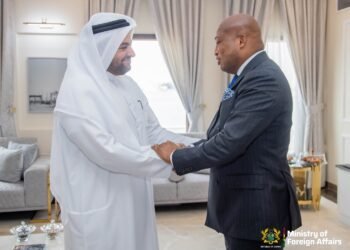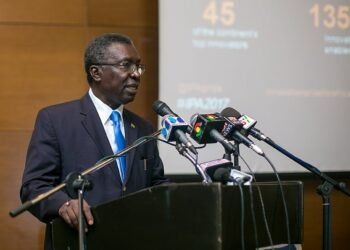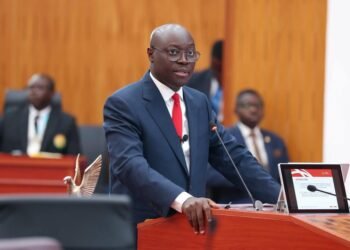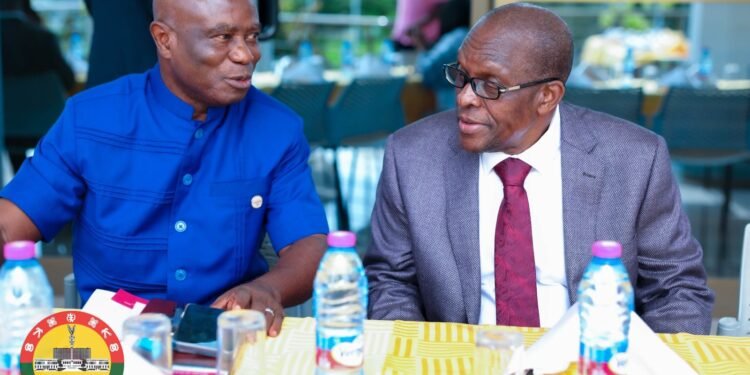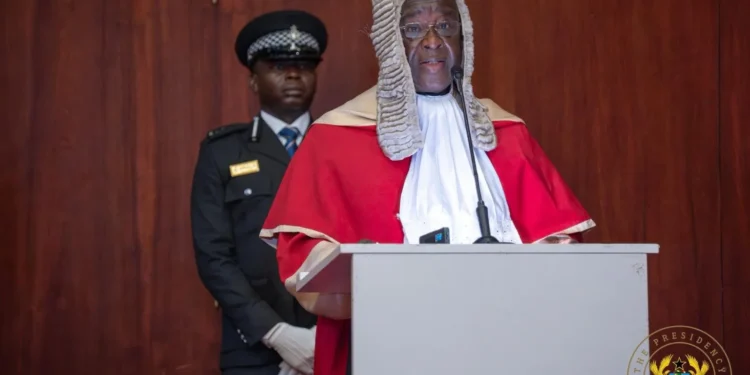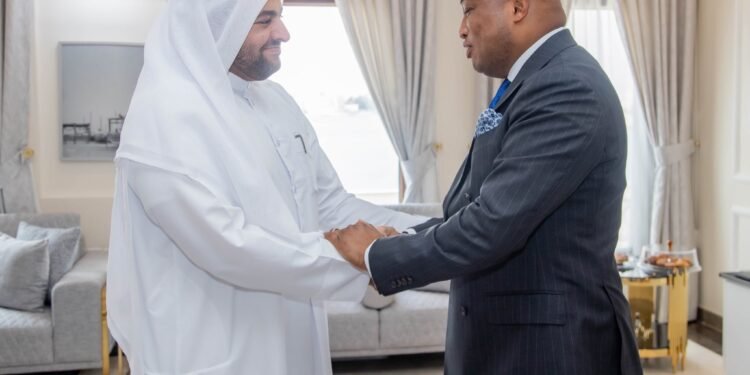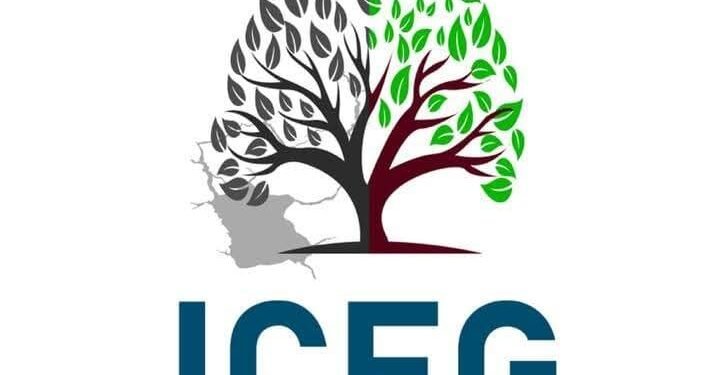Ghana’s new Chief Justice, Paul Baffoe-Bonnie has used his swearing-in ceremony at the Jubilee House to set out an ambitious and morally weighted vision for Ghana’s judiciary, grounding his message in humility, constitutional fidelity, and a call for sweeping institutional renewal.
His address unfolded as both thanksgiving and agenda, marked by reflections that framed the judiciary not as a distant citadel but as a public trust that must evolve to meet the needs of citizens under President John Dramani Mahama’s administration.
Chief Justice Baffoe-Bonnie opened with solemn appreciation for the President, the Vice President, and the wide range of dignitaries present, aligning his acceptance with the constitutional responsibilities placed upon him. His introductory expression captured the emotional weight of the moment.
“It is with a deep sense of humility, gratitude, and solemn responsibility that I stand before you today on this historic occasion of my investiture as Chief Justice of the Republic of Ghana”
Chief Justice Paul Baffoe-Bonnie
He spoke of gratitude to God and to those whose efforts shaped his professional journey, from mentors and colleagues to family members whose support had been constant.
These early reflections served as the platform for a larger argument that the judiciary’s character rests on both individual commitment and collective labour, especially from those whose contributions are often unseen.
Moving from gratitude to institutional philosophy, the new Chief Justice stressed that Ghana’s justice system cannot rely solely on the existence of laws but must ensure that those laws are applied with fairness, dignity, and respect for human rights.

“We serve a nation built on the 1992 Constitution, which enshrines not only rights, but also responsibilities. Our judiciary must be independent, impartial, and accessible. It must not serve the powerful or the connected at the expense of the weak and the vulnerable.
“It must resist any incursions on its freedoms, but also embrace accountability, transparency, and continuous reform. In recent times, many Ghanaians have expressed concern about delays, access, and perceptions of fairness in our courts. I wish to confront those concerns head-on”
Chief Justice Paul Baffoe-Bonnie
A Reformed Judiciary
Chief Justice Baffoe-Bonnie addressed national concerns regarding delays, access barriers, and doubts about judicial impartiality – acknowledging them as challenges requiring deliberate attention rather than being sidestepped.
He emphasised the need for courts to demonstrate fairness through action, not appearance, reinforcing the principle with one of his core declarations:
“The judiciary must not only be seen to be fair, but must be fair, clearing backlogs, reforming processes, promoting alternative dispute resolutions where appropriate, harnessing technology, and ensuring that ordinary citizens can approach the courts with confidence.
“I envision a system where alternative mechanisms of dispute resolution complement the formal courts and relieve the strain of backlog. I envision courtrooms where respect reigns, but where litigants are not intimidated, where the language of justice is not alienating, but comprehensible to every Ghanaian”
Chief Justice Paul Baffoe-Bonnie
He tied justice to accessibility, independence, resistance to external pressure, and transparency, combining the ideals of constitutional guardianship with the practical needs of ordinary citizens. In his view, the legitimacy of the judiciary is built not on ceremony but on performance.
A significant portion of his address also envisioned a judiciary where judges and court staff treat every litigant with dignity and uphold ethical standards without compromise – describing a service-oriented institution guided by compassion, efficiency, and openness for all.

Chief Justice Baffoe-Bonnie’s portrait of an improved judicial environment extended to infrastructure, digital systems, and the everyday culture of courtrooms, which he hoped would become less intimidating and more comprehensible to citizens seeking redress.
He underscored the moral weight of judicial authority in a pledge that highlighted both expectation and obligation.
“I will also insist on accountability, because independence without responsibility breeds entitlement and erosion of public trust. Judges, court officers, and staff will be encouraged and supported to act ethically, to treat all who come to court with fairness, and to understand that the title judge is not a privilege but a public service”
Chief Justice Paul Baffoe-Bonnie
The vision emphasised that justice depends as much on the attitudes of those who administer it as on the statutes they interpret.
Reforming Legal Education
Chief Justice Baffoe-Bonnie also tied the strength of the future judiciary to the evolution of legal education, arguing that its current state must shift toward inclusivity, critical engagement, and professional competence.
He pointed to the need for collaboration between the General Legal Council, the Ghana School of Law, and academic institutions to ensure that education strengthens, rather than weakens, the broader judicial system.
His appeal for a reformed bar was captured concisely in his statement: “Our goal is not merely to produce more lawyers, but better lawyers who are disciplined, ethical, and devoted to the cause of justice.”
While it underscored improvement over expansion, the larger theme reflected a belief that the judiciary’s long-term credibility is shaped in classrooms as much as in courtrooms.
Having served seven months in an acting role, Chief Justice Baffoe-Bonnie reflected on the quiet strength he had witnessed across the judicial service and the faith citizens continue to place in the courts.

He accepted the office with the awareness that the position carries more weight than authority alone, presenting it instead as a solemn commitment to national service and closed his address with a call for courage, renewal, and hope.
He framed the judiciary not as an institution shaped by privilege but as a sanctuary for all Ghanaians and urged stakeholders to work collectively toward a justice system that is transparent, inclusive, and grounded in the Constitution.
His final reflections linked Ghana’s legal future to the choices its leaders and institutions make today, casting the moment as an opportunity not to repeat history but to improve upon it.
READ ALSO: ICEG Warns 2026 Budget Falls Short on Lasting Energy Sector Reforms






